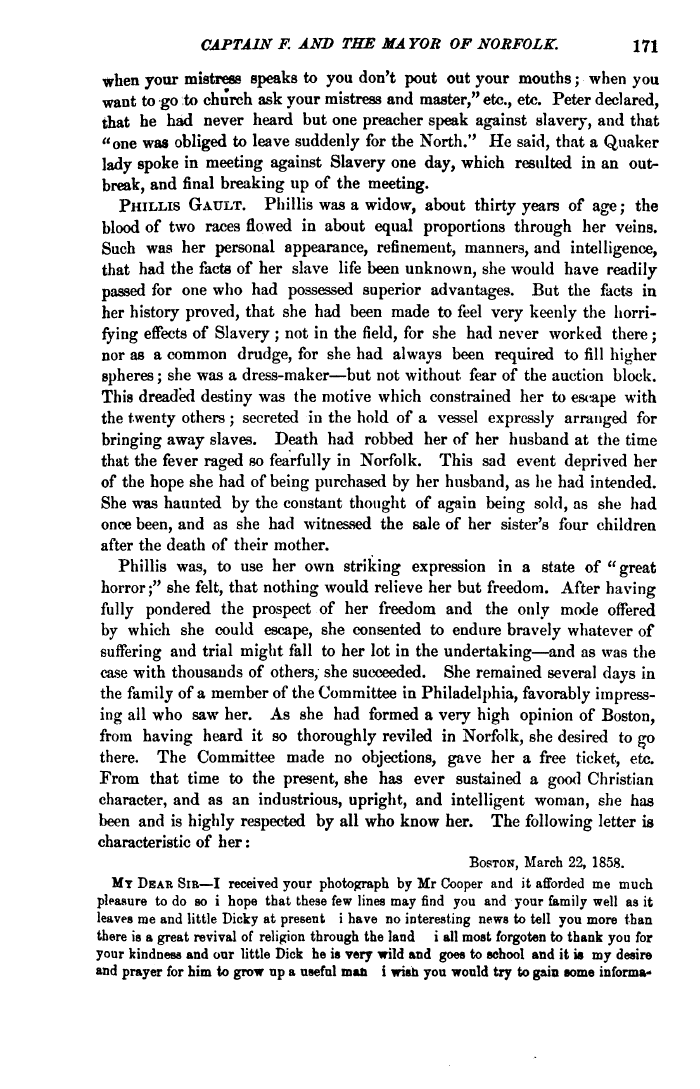 |
||||
 |
||||
| CAPTAIN F. AND THE MA YOB OF NORFOLK. 171 when your mistress speaks to you don't pout out your mouths; when you want to go to church ask your mistress and master," etc., etc. Peter declared, that he had never heard but one preacher speak against slavery, and that "one was obliged to leave suddenly for the North.'* He said, that a Quaker lady spoke in meeting against Slavery one day, which resulted in an outbreak, and final breaking up of the meeting. PHILLIS GAULT. Phillis was a widow, about thirty years of age; the blood of two races flowed in about equal proportions through her veins. Such was her personal appearance, refinement, manners, and intelligence, that had the facts of her slave life been unknown, she would have readily passed for one who had possessed superior advantages. But the facts in her history proved, that she had been made to feel very keenly the horrifying effects of Slavery ; not in the field, for she had never worked there; nor as a common drudge, for she had always been required to fill higher spheres; she was a dress-maker—but not without fear of the auction block. This dreaded destiny was the motive which constrained her to escape with the twenty others; secreted in the hold of a vessel expressly arranged for bringing away slaves. Death had robbed her of her husband at the time that the fever raged so fearfully in Norfolk. This sad event deprived her of the hope she had of being purchased by her husband, as lie had intended. She was haunted by the constant thought of again being sold, as she had once been, and as she had witnessed the sale of her sister's four children after the death of their mother. Phillis was, to use her own striking expression in a state of "great horror;" she felt, that nothing would relieve her but freedom. After having fully pondered the prospect of her freedom and the only mode offered by which she could escape, she consented to endure bravely whatever of suffering and trial might fall to her lot in the undertaking—and as was the case with thousands of others, she succeeded. She remained several days in the family of a member of the Committee in Philadelphia, favorably impressing all who saw her. As she had formed a very high opinion of Boston, from having heard it so thoroughly reviled in Norfolk, she desired to go there. The Committee made no objections, gave her a free ticket, etc. From that time to the present, she has ever sustained a good Christian character, and as an industrious, upright, and intelligent woman, she has been and is highly respected by all who know her. The following letter is characteristic of her: BOSTON, March 22, 1858. MY DEAR SIB—I received your photograph by Mr Cooper and it afforded me much pleasure to do so i hope that these few lines may find you and your family well as it leaves me and little Dicky at present i have no interesting news to tell you more than there is a great revival of religion through the land i all most forgoten to thank you for your kindness and our little Dick he is very wild and goes to school and it is my desire and prayer for him to grow np a useful man i wish you would try to gain some informa- |